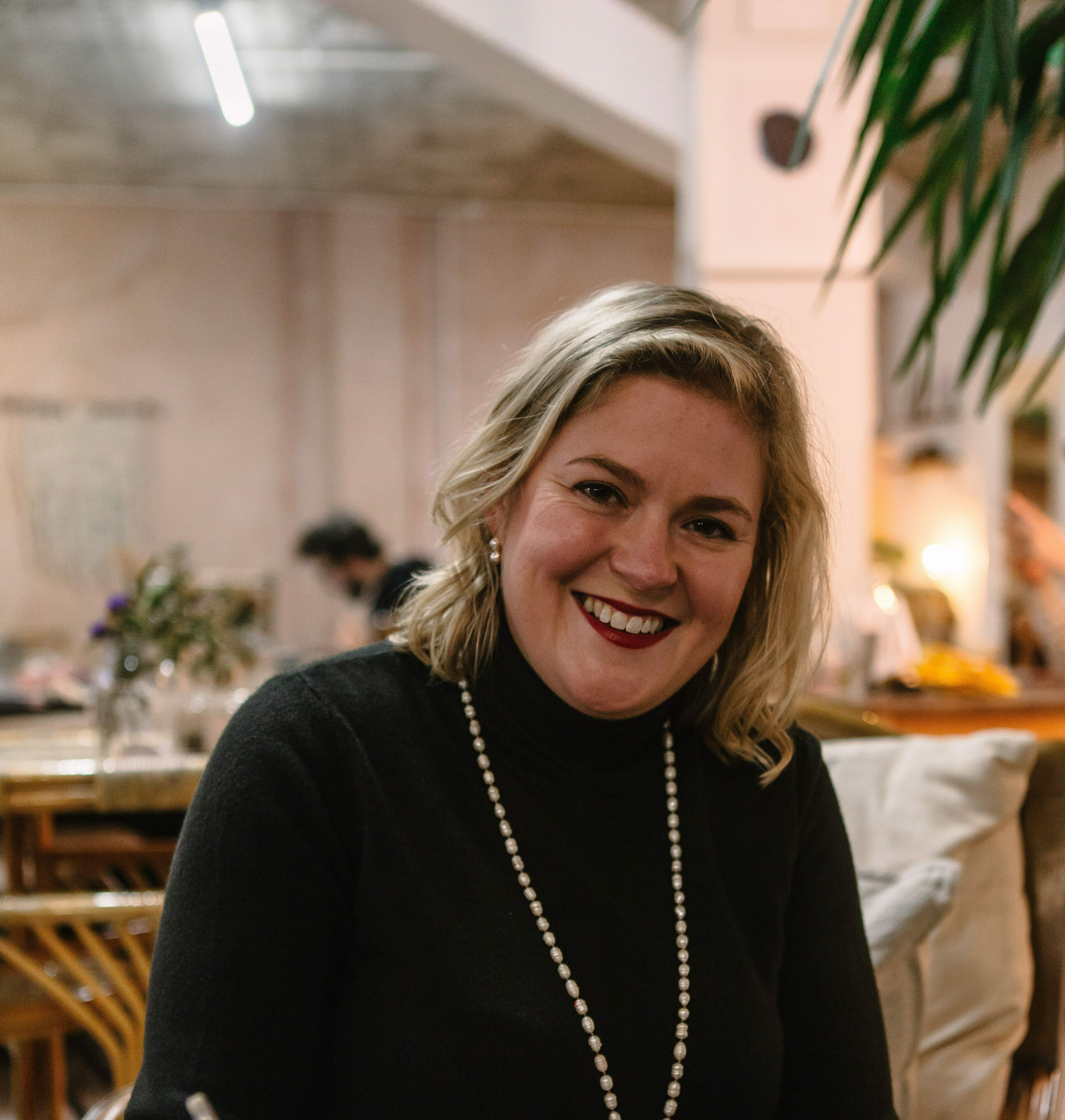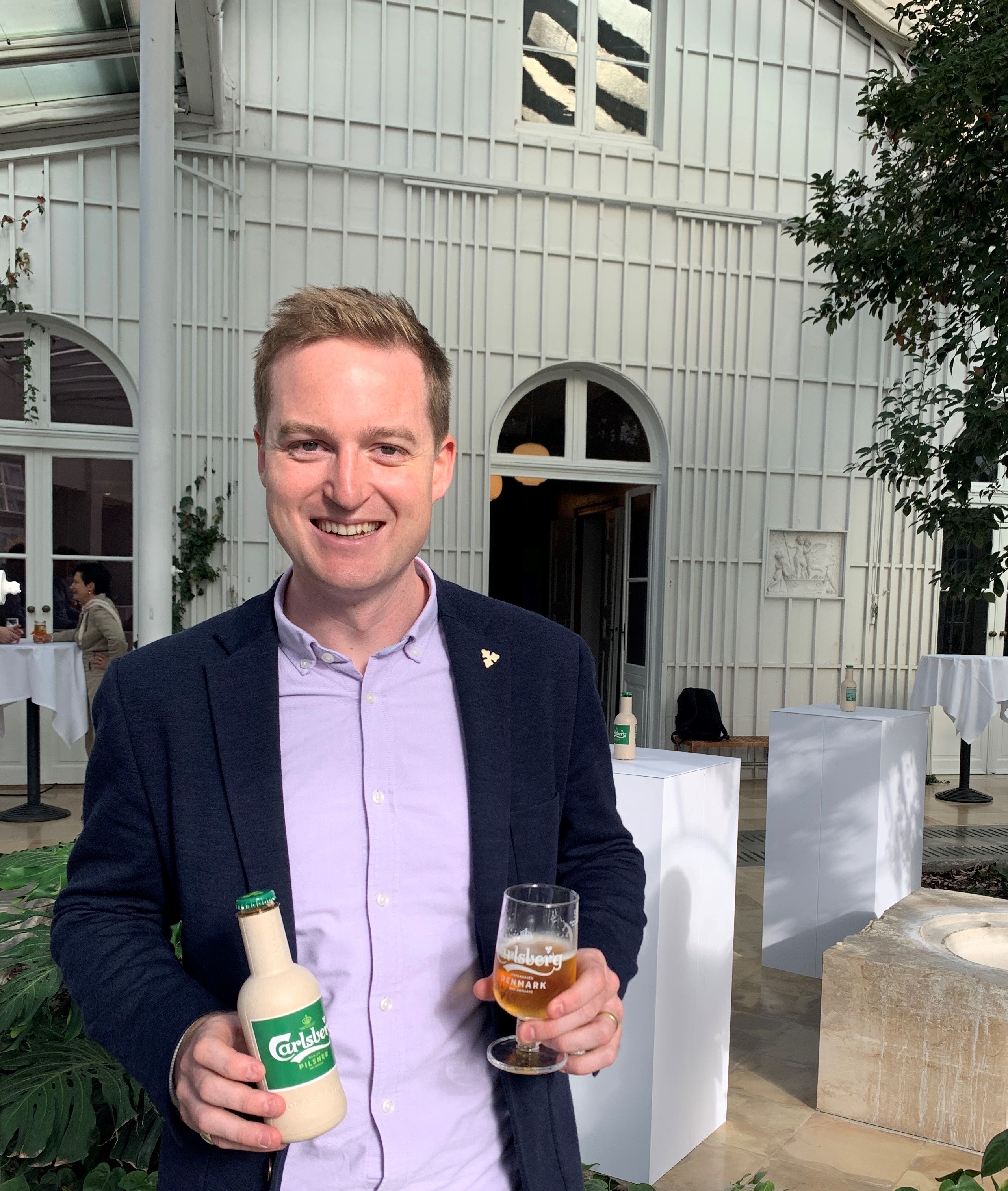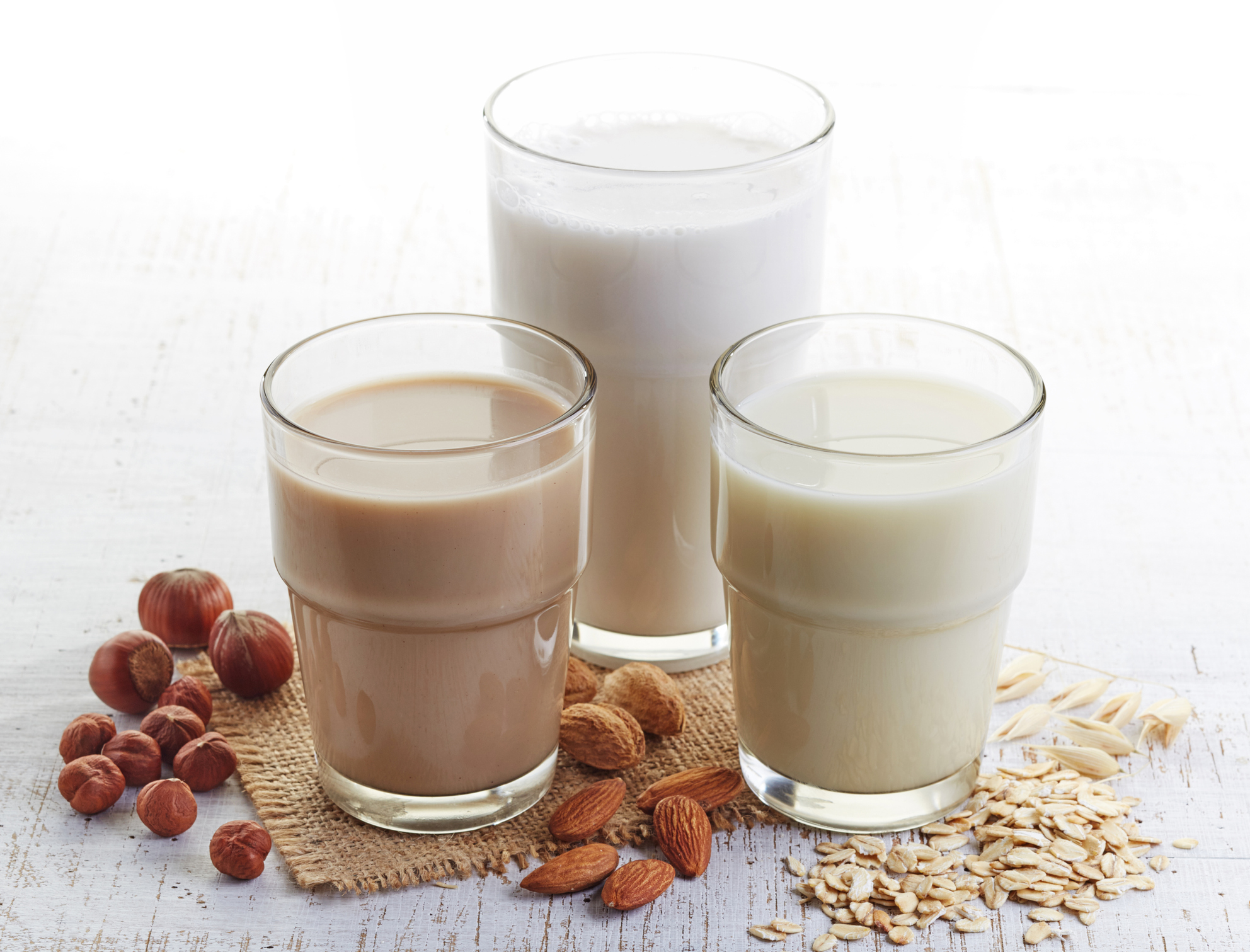Green Pioneer interview: Giles Brook, Whitespace Ventures CEO

Giles Brook is the CEO and founder of Whitespace Ventures, an investment fund which supports, advises and leads food and drink start-ups in both competitive and untapped markets.
Giles has worked in food and drink for the last 25 years. Beginning a career as a Marketing Manager at United Biscuits, he found success working as part of smoothie brand Innocent in the early 2000s. From here, he has founded and otherwise supported a slew of start-ups, many of which have been groundbreaking in their respective fields – from Vita Coco, to Urban Fruit, Dalston’s and We Are Tea.
Working with as many brands as he does, Giles spends a lot of his time – when he isn’t training for triathlons, that is – thinking about the impact he has on the world around him. Sustainability and social responsibility rank just as highly on his list of priorities as profit, he says.
Following a hugely successful funding round for his latest project, gut health-focussed cereal brand Bio&Me, Food Matters Live sat down with Giles to talk about trends in food and drink, why purpose is so important, and just what a brand has to do to catch his attention.
You’ve been working in food and investing in companies for some time, having worked with specific brands and founding your company, Whitespace Ventures, in 2009. How have things changed since you got into the space?
The role of challenger brands has really come to the fore in the time I’ve been working. I think every single category needs a challenger. Innocent has done a great job in that respect, as have the likes of Fever Tree and Vita Coco. We’re hoping that Bio&Me can perform a similar role in the cereals category.
But while challenger brands are more prominent than ever, I’d add the caveat that there is more pressure than ever on brands to prove themselves. Beforehand, you’d have maybe a year or 18 months to prove yourself. Right now, if you’re looking at bricks and mortar retail, where huge range rationalisations have been undertaken in the last two years, you’ve got a timeline of maybe six months to prove you’re worth a retailer’s time. If you’re not there right away, there’s every chance you’ll get delisted before you’ve had a chance to shine.
You were Commercial Director & General Manager for UK & Ireland at Innocent Drinks Ltd. Innocent went from start-up to a huge success. What does it take for a start-up to succeed and what advice would you give them?
I was at Innocent for four years and I find people often say to me, “that must have been amazing”, without realising how much blood, sweat and tears went into it all. To go from £17 to £120M, we had some very tough times. We had to deal with things like running out of money and a backlash against sugar. For me, it’s all about how you respond to those challenges. We responded well, and that’s why Innocent is a billion dollar brand today.
I have a 15-point criteria which dictates whether or not I get involved with a brand. I think one of my most trusted tests is to look at the macro trends and assess if a brand is going to scale or stay niche. There are always trends that people get really excited about, but very few which actually turn out to be a juggernaut.
There are certain brands I’ve worked with that I’ve known from the outset were going to be big. Pip & Nut has been a great example of that – I got involved with them very early on knowing it would succeed. Their founder is passionate about what she is trying to do, the product tastes amazing and it was in a category which desperately needed a challenger.
How do you spot early on that a start-up is going to be successful and catch consumers’ attention?
Again, I think Pip & Nut is a great example. We knew people were going to be getting excited by it because of the noise we were getting from social channels. Pip (Murray, Founder) had a vision of showing the world that peanut butter wasn’t just for toast. And as soon as she brought this to the public, they ran with it. Now they have whole campaigns devoted to customer ideas and new recipes where peanut butter is used in a myriad of ways without a slice of toast in sight. When you have consumers that excited, you know things are going to go well.
“There is a resistance to create change at the rate it is needed to save the planet. When you’ve got shareholders and you have to reach certain numbers, there is always a slight conflict of interest.”
Food and drink companies are putting more focus on being ethical and eco-conscious. How do you think the food sector as a whole is doing in this regard?
What are the challenges for food brands striving to become more ethically and socially conscious?
There are a number of categories which for me simply aren’t doing enough. They’re awash with single-use plastic or they’re using ingredients that aren’t good for you, for example. I know some of the biggest beverage companies will talk about having a health and wellness portfolio. But the reality is that the minute their number one or number two brand – typically the ones with the worst sugar levels – go south even a little bit, everything stops and rushes back to sort that out. A lot of these big companies have a vested interest in keeping things the same.
Another thing which makes things difficult is the fact smaller companies can outsource their operations. Essentially, they can shop around to find the more sustainable options when it comes to packaging or ingredients or production. Meanwhile, because larger companies do all this in-house, they have a lot of money invested in doing things the way they already are. A lot are tied in plastic bottles, for example, and that can and does slow down innovation in this area. There is a resistance to create change at the rate it is needed to save the planet. When you’ve got shareholders and you have to reach certain numbers there is always a slight conflict of interest.
This is one of the beauties of the way my job works. Because we work at much smaller scales, we essentially have a blank piece of paper onto which we can design our impact on the world for the better.
You work many brands which could be described as purpose-led. What do you think it means to be truly purpose-led, and how can brands better communicate their purposes and make people care too? For brands that didn’t start out as specifically purpose-led, what do you think they can do to change paths?
A good looking brand or great tasting product is no longer good enough. Everyone has to have a purpose, a sustainable angle to bring to the game. The consumer is looking for solutions that ensure whatever it is that they’re buying, it has a positive impact on the world around them.
For the really big guys, purpose is a tricky hurdle to overcome. Finding and committing to a purpose has dramatic financial impact on business. Smaller brands like the ones I work with generally can be more agile about these things. But equally, that shouldn’t be an excuse for anyone. Bigger brands have the money to make changes, and also have a disproportionately bigger effect on the environment and world around us.
My biggest advice is for businesses is you can’t be everything to everyone, and you shouldn’t try to be. When we started Bear, we knew we wanted the business to be about pure fruit and helping mums and dads to get these good ingredients into their kids. We tried to use the most ethically-minded sourcing and ingredients and so on, but there are always holes in anything you do. We couldn’t be everything – and we actually put a section on our website exposing the things which weren’t as good about us. We included them because we knew we would address them at some point. Being transparent and honest are qualities people really appreciate.
When it comes to Gen Z consumers – who are widely considered to be a purpose-led generation – what do you find is the most common mistake that brands make when trying to appeal to them?
I really believe that purpose-led brands resonate with Gen Z. They vote with their pocket and if they don’t believe a company’s claims, they simply do not entertain them. No matter how much a brand pesters them. If you can have an ethical and sustainable brand or service, that’s one thing. But if you can emotionally engage with Gen Z too, you’re winning.
Gen Z appreciate a brand that has a warmth of voice without being patronising. But I’ve also learned that you have to evolve and create more interest for the younger population – they work and move so quickly. You have to keep providing excitement because if you don’t, they’ll find it somewhere else.
“A good looking brand or great tasting product is no longer good enough. The consumer is looking for solutions that ensure whatever it is that they’re buying, it has a positive impact on the world around them.”
We’re talking following the news of Bio&Me’s investment success and Harry Kane coming on board. Why do you think gut health is drawing so much attention right now and what do you think is next for this sector?
To me, gut health is going to become as important to the public as something like protein. Protein has been a huge trend in recent years. But the people who have been the most concentrated on protein have usually been those who are more physically active, and there has historically been a male bias. Additionally, we’ve had the usual turn of events in which a market has become saturated – who on Earth, for example, needs a Mars protein bar? Everyone jumped in, and only now are we seeing the sector settle down and reveal the true big players.
I think gut health is the next big thing – but I also believe it has the power to eclipse protein because everyone needs a healthy gut, not just athletes. Your whole health starts in your gut. That is for me, the biggest and the best way to have a healthy lifestyle and combat modern day illnesses. But as with a lot of things, the more natural a solution is, the better. And Bio&Me is totally plant-based. Megan’s (Dr Megan Rossi – known as the Gut Health Doctor) knowledge and understanding of this space is just off the charts. What she pulls together, we know other people can’t match.
Another reason I think this is such a big trend waiting to explode is that the groundwork is already there. We know from market research that people in the UK and beyond have been engaging with brands like Actimel and Yakult for decades. They understand the importance of gut health and so we’re confident this is going to resonate. It all comes down to what I’ve said about macro trends.
You have a background in food marketing – what does a brand have to do to catch your attention?
The best way to catch my attention is through simple, bright and clear packaging. It’s a personal opinion, of course, but I’m a big fan of really strong Pantones and branding. I want to be able to understand everything I need to just from looking at the packaging of a food product.
What is next for Whitespace Ventures? Are there any sectors within food that you’re paying close attention to, beyond gut health?
I’m going to be controversial and say that I still don’t think we’ve seen the peak of the plant milk trend yet. However I think what is coming is less about the single-ingredient and more about blends. A brand I’m currently involved with, Lilk, is doing just that and I think this is a really interesting space to be in.
Single-ingredient milks taste really good, but so many simply do not behave in the same way as cow’s milk, meaning they’ll never be a perfect swap. Bastian and Elisa (Emery, sibling co-founders of Lilk) have truly made something that could be. It’s the only product of its kind I have tasted that basically duplicates milk, not just in taste, but in texture as well. The way they’re doing all of this is through milk blends – for example using oats, coconut, rice and quinoa in varying combinations.
One final thing I think we should all be looking out for is how labelling is evolving. For many years, we’ve had traffic-light nutritional labelling on food. I’m sure we’re on the cusp of something similar for the eco credentials of products too. I’m hoping someone can do it, and do it well. Unfortunately the Government is very good at putting policies in place, but a lot of environmentally positive steps are hugely cost prohibitive. Perhaps if we put everything on the front of our packaging, we can encourage movement on both sides – private and Government. And ultimately, anything which can help consumers to make more informed choices is a good thing.
And finally, what advice would you give to someone wanting to become an investor like you?
I don’t think I’m necessarily the typical investor – a lot of others probably wouldn’t get involved in businesses to the same extent that I do. My advice for anybody wanting to follow the footsteps of what I do is to only get involved in things that you’re personally passionate about. Don’t just get involved with businesses because you think they’re going to perform well – you want to make sure you can engage with what’s going on in a personal way.
However, that being said, my second piece of advice is to be careful when you’re getting close to one of your hobbies or pastimes. Don’t blur the boundaries of work and play. I for example do quite a lot of sports-related things, but I’m wary about getting involved with sports nutrition brands because then I might not have any outlet away from work.
My final recommendation is a simple one: make sure you gel with the founders and companies you’re working with. You’re going to be spending a lot of time with them – it makes your life and work so much more enjoyable when you’re on the same page. This is a critical requirement for me when I’m judging whether or not to get involved with a brand.








